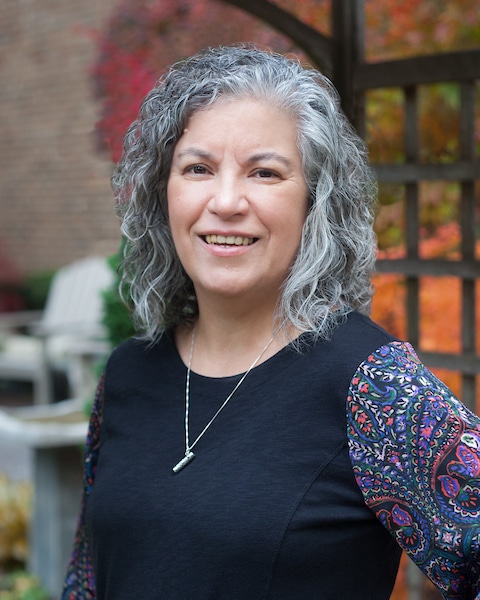by Kim Cavitt, AuD
John Smith is a 55 year old, self-employed farmer in rural America. Access to hearing healthcare, on a good day, is a solid 45 minute drive from his farm. The available options are open Monday through Friday, 8 am to 5PM. This cuts into the heart of his work day. No one can fill in for him and vacation is merely something he hears about from family but often does not get to experience himself. Merely getting evaluated, in the current regulatory model, is at least a three hour commitment in travel, parking, forms completion, waiting, and clinic time. If he wants to proceed with amplification in this model, add another at least seven hours of fitting and follow-up visits and thousands of dollars in cost to the process. All of this is overwhelming to Mr. Smith so he remains untreated. No brick and mortar hearing healthcare practice has offered him a more accessible journey.
Mary Jones is an 80 year old, long-standing binaural hearing aid patient who lives independently in a major metropolitan city. Her hearing aids are three-years old. After getting vaccinated, she decided to finally visit her daughter a few hours away at the beach and plans to stay for at least a month. She lost her hearing aids on day one while walking outside with her family. She loves her audiologist and would love to get her replacement hearing aids from that practice. Unfortunately, that is not an option given her distance away and the regulatory framework in her state. Ms. Jones options now are an unfamiliar provider or an online solution.
Time for Change?

Kim Cavitt, AuD
State hearing aid dispensing regulations were created in a time where providers were selling products door to door and where technology (computers, cell phones, applications, Bluetooth, etc.) did not exist. They went beyond the Food and Drug Administration (FDA) regulations to prescribe evaluation, care and delivery. Unfortunately, these restrictive, unyielding and often archaic regulations do more now, in the 21st century, to restrict access, increase cost, and negatively impact adoption of amplification than they offer in true consumer protections.
Consumers have always had direct to consumer amplification options; it is just that licensed providers have not been able to typically participate in or support these delivery channels and have been socialized to believe that they are inferior. Sadly, a 1970s regulatory framework, which was a reaction to consumer fraud and abuse, keeps providers like me from being able to offer, from our own business entities, more accessible and affordable solutions. We are bound by statutes, laws, acts, codes and rules that retailers are often not subject to follow.
I am a doctoral level audiologist. I have years of training and experience. I, not a state government, know what each consumer or patient needs in order begin a successful amplification journey. I should not have to be told, through regulations, what to do or how to care for my patient. Regulators do not have to tell other healthcare professionals how to evaluate and treat their patients. Device manufacturer should not get a voice in the practice of audiology or hearing aid dispensing. They are suppliers, not practitioners. If I want to evaluate Mr. Jones or Ms. Smith remotely, ship them amplification solutions, and fit and follow up with them via telehealth, I should be able to do that with MY patient.
The Federal Trade Commission (FTC) and their regulations continues to hold providers and suppliers responsible for regulations surrounding false or misleading advertising, used or reconditioned hearing aids, return for credit privileges, warranties, leasing arrangements and/or consumer complaint processes. The consumer will always have remedies, through the FTC or their state attorney general’s office, if they feel that they have been fiscally harmed or exploited. The consumer or patient also have legal remedies, through malpractice claims, if they feel they have been medically harmed or misdiagnosed. True consumer protections will always exist and will continue to be more robust than state hearing aid and audiology dispensing boards.
Providers need to realize that increases in adoption are a byproduct of accessibility, affordability, and acceptance, not just awareness. Many consumers are aware of who we are and what we do; they just do not see the value of the current product, pricing, and delivery models. These consumers are comfortable with online healthcare. I want the flexibility to develop an evaluation and/or treatment plan that will lead to a given consumer’s adoption treatment and amplification solutions when they are younger and more mildly impaired. Research evidence has shown me that the risks of less than gold standard evaluation and treatment (which most consumers do not receive anyway) are greater than the risks of no treatment at all.
I want the freedom to be able to practice on a level or equal playing field to that of my retail “competition” and I want to be able to illustrate why and how I, within my own delivery framework, can produce greater acceptance, satisfaction, and benefit. I want legislative initiatives, like that being proposed in Florida, to help audiology chart a new, different yet exciting path forward, where opportunities abound. I want the consumer to finally be allowed to be the captain of their own hearing journey; I merely want a role as their navigator, not the pirate.
About the author
Kim Cavitt, AuD was a clinical audiologist and preceptor at The Ohio State University and Northwestern University. Since 2001, Dr. Cavitt has operated her own Audiology consulting firm, Audiology Resources, Inc. Audiology Resources, Inc. provides comprehensive operational, compliance and reimbursement consulting services to hearing healthcare providers. She is a Past President of the Academy of Doctors of Audiology (ADA), serves as the Chair of the State of Illinois Speech Pathology and Audiology Licensure Board, serves on the Audiology Quality Consortium and serves on committees through ADA and ASHA. Dr. Cavitt is also Adjunct Lecturer at Northwestern University.







